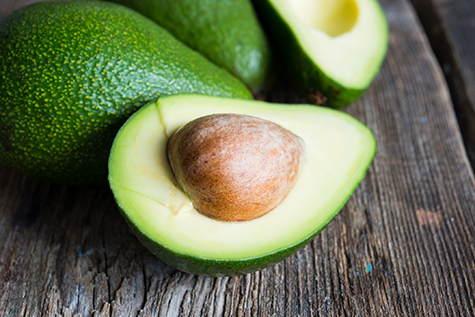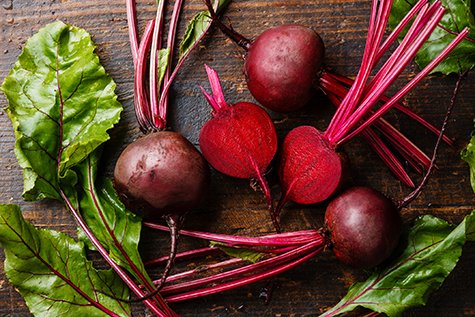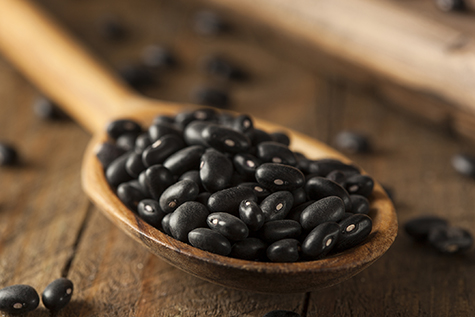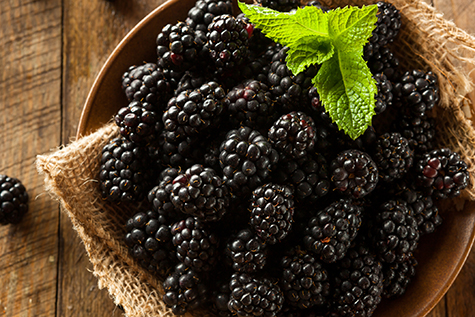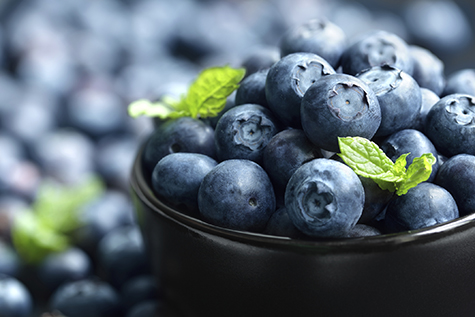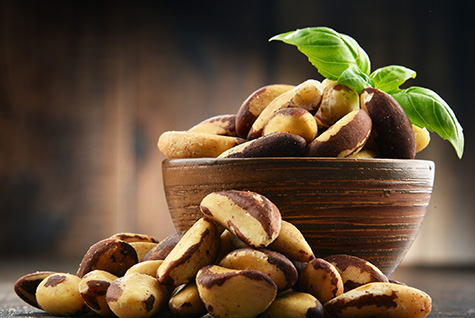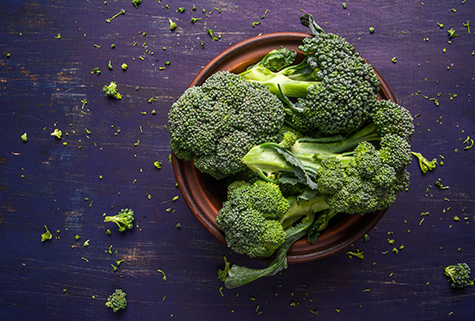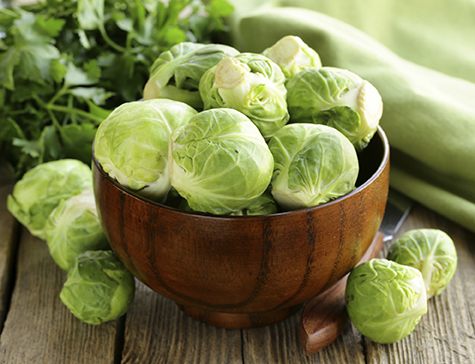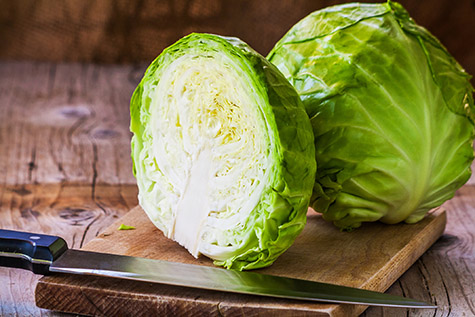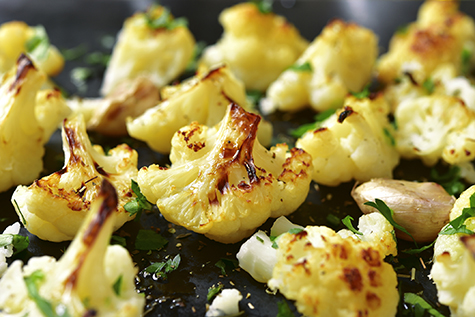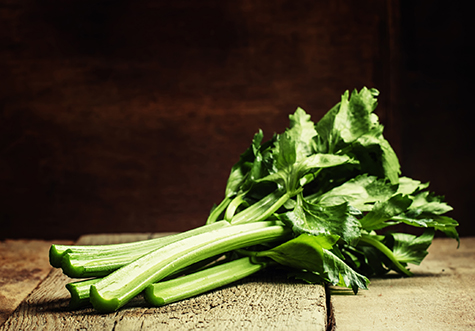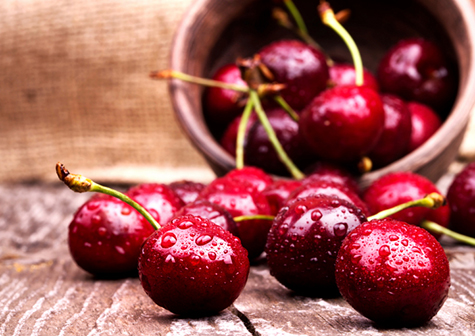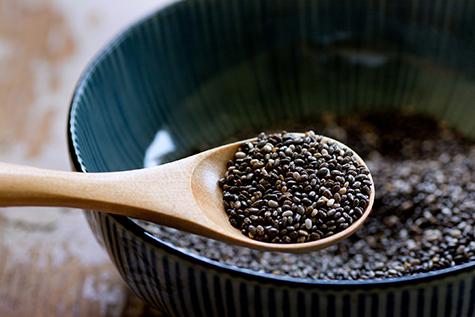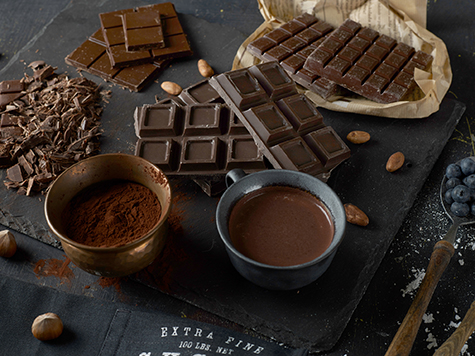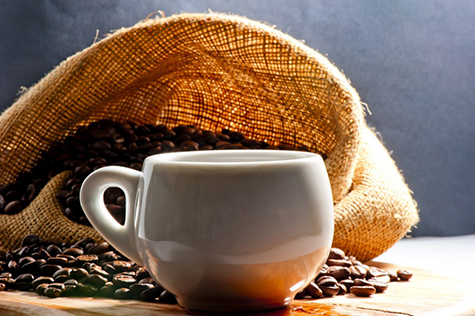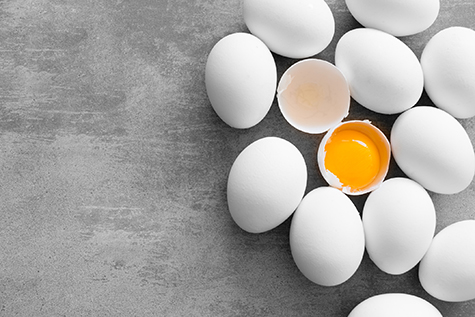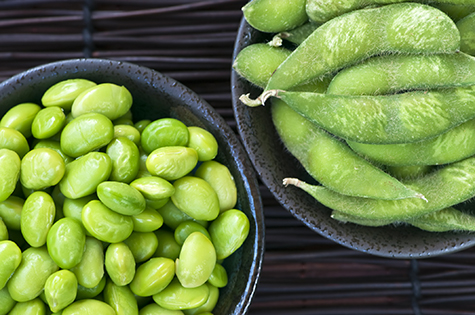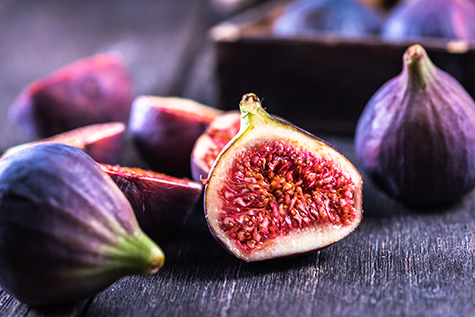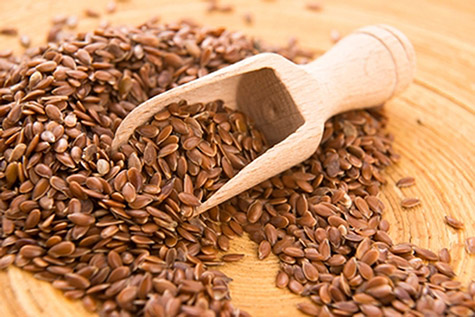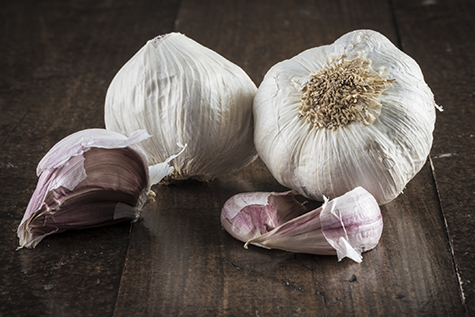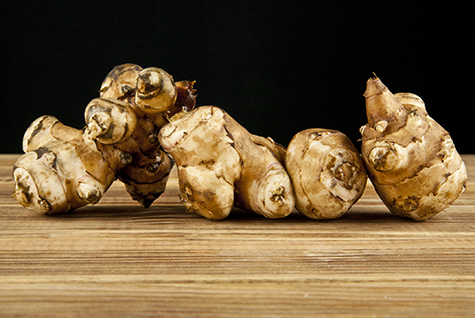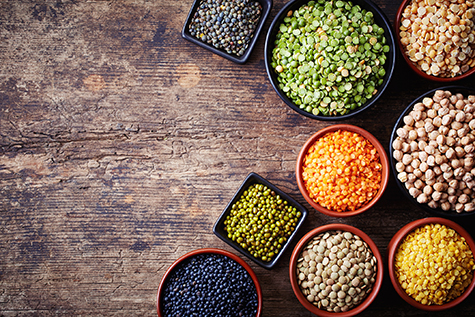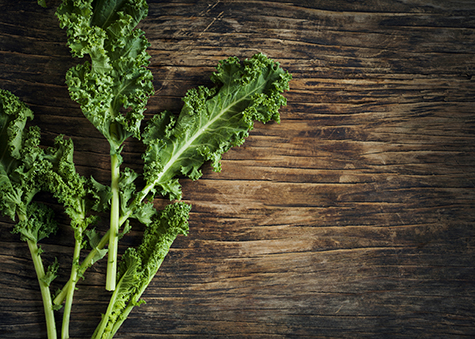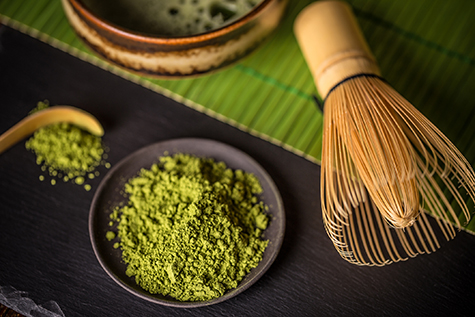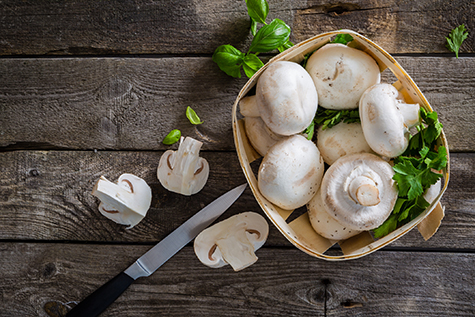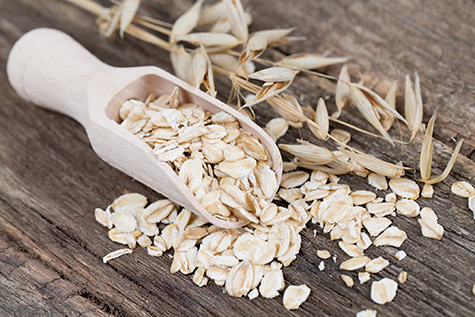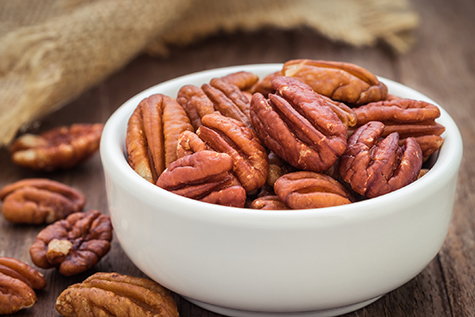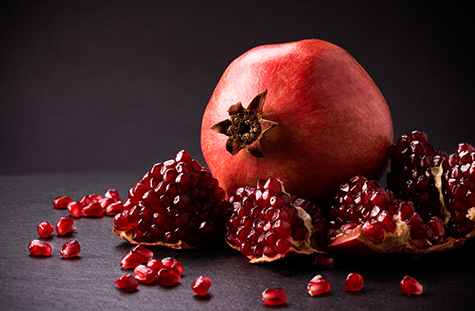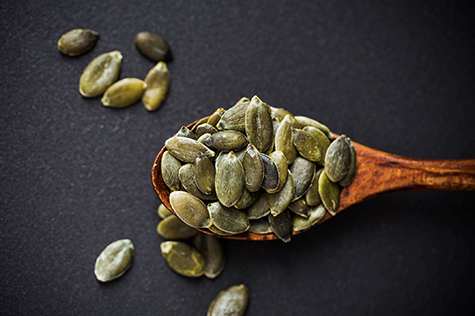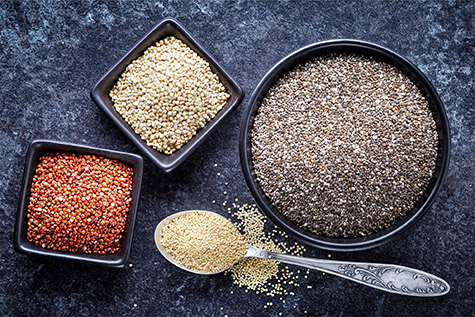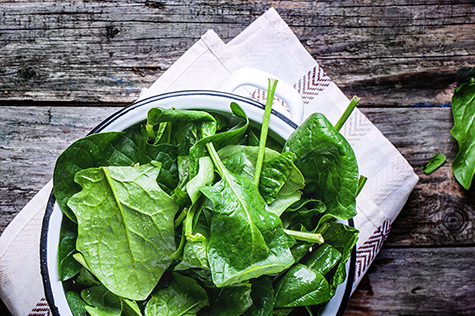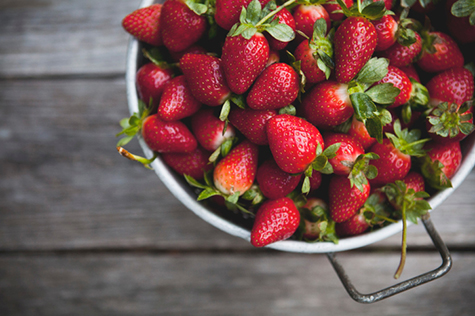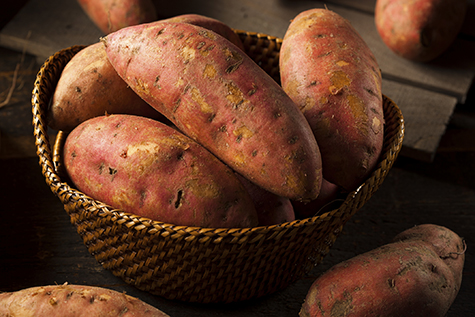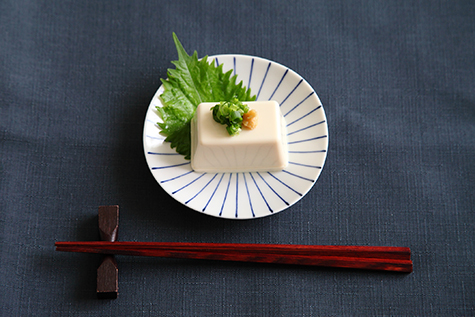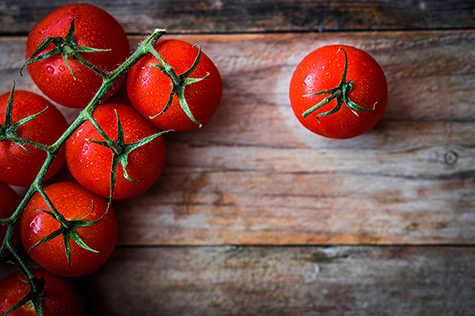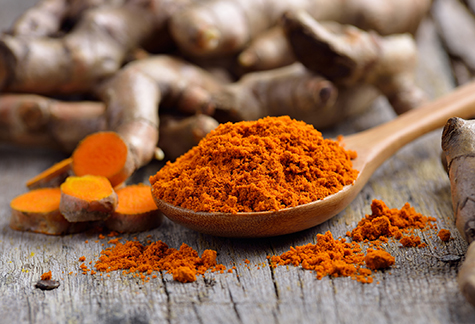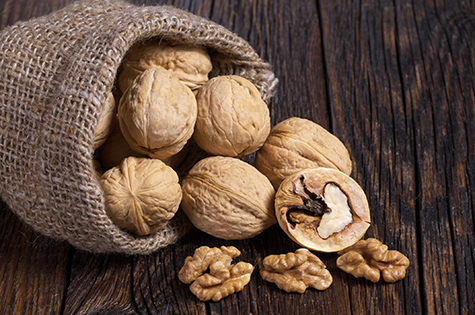Top 50 Foods for Boosting Memory

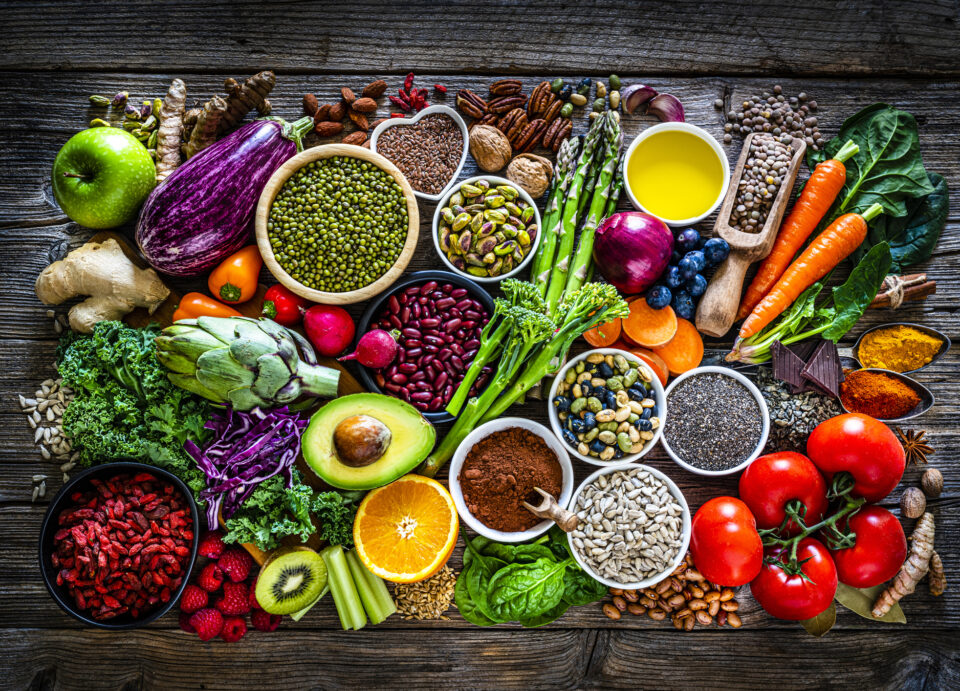
You are what you eat and the foods you choose can affect all the body’s systems including
the brain. Nutrients can boost memory and mental focus, but some foods can reduce it. When the brain is experiencing stress or inflammation, it isn’t as sharp. When it gets access to vitamins, minerals, antioxidants and healthy fat, it functions better.
Foods rich in nutrients like antioxidant vitamins C, neuro-supportive B vitamins, and omega-3 fatty acids can sharpen memory and learning. Here is the ultimate FoodTrients® list of the top 50 foods to boost your memory:
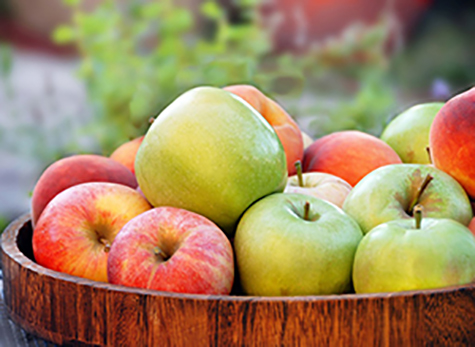 1. Apples
1. Apples
Antioxidants are generally good for the brain and apples of all colors are a rich source of these compounds. Everyone’s favorite fruit contains the powerful antioxidant vitamin C which, in some studies, is low in people suffering with Alzheimer’s Disease. An apple a day is healthy in so many ways.
2. Anchovies
Anchovies and other cold-water fish have been linked to several factors which could support the brain and memory. Omega-3 deficiency in the brain is associated with decreased learning ability while intake of omega 3 fatty acids over time has been shown to improve reference memory-related learning.
3. Avocado
Avocados are packed with folic acid, a water-soluble vitamin that supports the neurological system. Inadequate folate status may result in high level of homocysteine in the blood which is a significant risk factor for cardiovascular disease and increased risk for cognitive dysfunction. Homocysteine shows up in research on aging as a risk for cognitive decline at chronically elevated levels.
4. Beets
Beets and beet juice are both incredibly brain boosting because of some special properties this root vegetable contains. Aside from unique antioxidants called betalains, beets are also a source of choline which studies have shown may increase blood flow to the brain, enhancing perfomance.
5. Bell Pepper
Any color of bell pepper packs a powerful punch of vitamin C, an antioxidant supportive of brain health. In fact, there is more vitamin C in bell peppers than in an orange! Red, yellow, green or orange, bell peppers are also packed with nutrients that support neurological function including folate.
6. Black Beans
All beans contain a high level of folate which is good for the brain, cognition, and memory. Black beans contain unique antioxidants such as anthocyanins including petunidin, delphinidin, and malvidin. Many antioxidants are linked to decrease in inflammation in the human body which could help to support a variety of systems – especially the brain because it is one of our hardest working organs.
7. Blackberries
A high intake of sugar and corn syrup is not good for the brain or memory, causing hormonal swings and changing glucose levels in the body quickly. The brain runs on glucose so swap out those sticky sweets with a natural treat like blackberries that offer nutrient-rich complex carbohydrates for energy. These beautiful berries contain vitamin C in addition to some potent calming antioxidants like quercetin and anthocyanins.
8. Blueberries
Blueberries contain special brain boosting properties. Researchers from Tufts University found that blueberries not only improve memory but can in fact reverse memory loss already done. In rodent studies on blueberry intake, these tiny study participants learned faster, had a better short-term memory and an improvement in balance and coordination.
9. Brazil Nuts
Brazil nuts contain the powerful antioxidant selenium as well as brain-boosting healthy fats. Unsaturated fatty acids work to protect nerve cells in the brain and lead to lower blood pressure. Both of these factors help the brain to function at its optimum capacity with plenty of oxygen and nutrients flowing at a steady supply to support learning and memory.
10. Broccoli
Broccoli, a cruciferous veggie, contains several brain-supporting nutrients including vitamin K which some studies have shown helps to strengthen cognitive abilities. It is also one of the few foods aside from eggs that naturally contains choline which has been found to improve memory. In fact, people who eat plenty of broccoli perform better on memory tests in studies.
11. Brussels sprouts
Another cruciferous powerhouse, Brussels should be celebrated for their brain boosting capacity in addition to their anti-cancer effects. Brussels sprouts contain unique anti-inflammatory and free-radical scavenging metabolites supportive of detoxification. Like broccoli, they are also a source of folate and vitamin C.
12. Cabbage
The brain works hard and generates free radicals and metabolites through all its thinking and processing. Any color cabbage contains detoxifying compounds that can help modulate hormones that increase stress and anxiety which can challenge the brain’s ability to focus. Include cabbage in a salad, in soups or in a stir-fry.
13. Carrots
Enjoy both carrots and carrot juice to support brain health and memory. Carrots are rich sources of antioxidants like beta-carotene and vitamin A as well as brain boosting vitamin C and stress calming B-vitamins. Carrots help keep the immune system running smoothly so you’re feeling energized and ready to learn.
14. Cauliflower
This versatile white veggie certainly offers brain boosting effects. In a study on cognitive decline in aging women in the Annals of Neurology found that women in the highest quintile of cruciferous vegetable intake experienced memory decline at a slower rate than all other study groups.
15. Celery
Crunchy celery has a similar brain-supporting property to beets and beet juice in the form of nitric oxide that helps maximize blood flow. Researchers have observed improvements in exercise performance and increased blood flow to the brain when exposed to food sources of nitric oxide which may increase neuroplasticity in the aging brain.
16. Cherries
Any color cherry is packed with antioxidant vitamin C in addition to anthocyanins which are antioxidants found in red and purple fruits. Studies have found that dietary intake of anthocyanins is associated with increased neuronal signaling in brain centers, mediating memory function.
17. Chia seeds
Tiny chia seeds add about 5 grams of fiber per tablespoon which is supportive of the cardiovascular system and may help manage weight – systems that support optimal brain function. They also offer a source of protein and omega-3 fatty acids which offer anti-inflammatory properties to help soothe the body as well as to protect nerve cells in the brain to support learning ability.
18. Chocolate
The cocoa in chocolate has some interesting health benefits for the brain including compounds that lower blood pressure and enhancing feelings of calm. There is evidence that cocoa can improve verbal fluency, cognitive function, and blood flow to the brain in elderly people.
19. Cinnamon
Simple cinnamon may make a big different for people experiencing memory loss such as those with Alzheimer’s Disease. In animal studies, cinnamon and its metabolite, sodium benzoate, helps to protect memory and learning. Sprinkle cinnamon in smoothies, add it to soups and sauces and put it on your breakfast foods for brain support.
20. Coffee
Researchers from the University of Innsbruck found that the caffeine equivalent of two cups of coffee improved memory skills, reaction time, and neuron signaling in the brain as compared to brain activity without caffeine. Another European study found that men who averaged three cups of daily coffee experienced less mental decline than nondrinkers over a 10-year period. It appears that the brain loves coffee!
21. Eggs
The yolks of eggs contain significant amounts of protein, zinc, choline, and vitamins A and D to support the brain. Choline is specifically supportive of memory in children’s growing brains so pregnant women should be sure to get enough through food sources. Eggs also contain a compound called phosphatidylserine which may enhance neuronal membrane function as people age.
22. Edamame
Edamame beans contain healthful components like fiber in addition to antioxidant isoflavones daidzein and genestein. It is another food, similar to eggs that contains phosphatidylserine, a phospholipid that may enhance neuronal membrane function and cognitive function.
23. Figs
Figs are rich in complex carbohydrates that help fuel brain function in addition to minerals that assist cellular function like potassium, calcium, magnesium, iron and copper. Figs offer a rich source of brain-boosting antioxidants including vitamins A and E. Include them fresh or dried in your diet if you’re studying or working and need a boost of energy and focus.
24. Flaxseed
Flaxseeds are a great source of fiber as well as omega-3 fatty acids. It is important to get enough dietary intake of omega 3’s because studies have shown a deficiency in the brain is associated with decreased learning ability. Eating flaxseeds is a great way to star your day but keep in mind that whole seeds cannot be broken open by the body during digestion, so grinding them is the best way to get access to their health effects.
25. Garlic
Everyone’s favorite savory flavor also offers some brain boosting effects. Garlic is an allium vegetable with sulfur-containing compounds that act as antioxidants and offer beneficial effects to memory in studies. Add garlic to sauces, salad dressing, spread it on veggie or bread or roast it up to serve with dinner tonight.
26. Jerusalem Artichoke
Also called sunchokes, these small root vegetables may offer brain health….through the gut. A favorite of the well-known neurologist and author, Dr. David Perlmutter, they promote gut health which he believes may have a link to lessened feelings of anxiety. It is true that Jerusalem artichokes are a prebiotic source, which support good bacteria in the colon.
27. Lentils
Legumes like lentils are rich in fiber for satiety and weight control and B-vitamins for neurological support. In fact, one cup of lentils provides the majority of your daily B-vitamin folate needs at 90%. Include lentils on salads, in soups and pureed into a dip; they are so easy to cook with because they soften much faster than beans.
28. Kale
This dark leafy green is known as a nutrition powerhouse and for good reason. One cup provides nearly all your vitamin C needs at 70% and all B-vitamins (aside from B-12 which are only found in animal foods). In a study that evaluated the eating habits and mental ability of more than 950 older adults for an average of five years, those who ate a serving of leafy green veggies like kale 1-2 times per day experienced slower mental deterioration than those who ate no vegetables.
29. Matcha
Refreshing green tea contains powerful antioxidants called catechins, known for brain and memory support. The amino acid L-theanine in green tea may target relaxation and the reduction in stress, supporting the brains ability to clear excitatory hormones. Drink green tea or blend matcha powder into a beverage to access these benefits.
30. Mushrooms
Although evidence is still preliminary, accumulating research suggests that culinary-medicinal mushrooms play an important role in the prevention of age-associated neurological dysfunctions such as Alzheimer’s and Parkinson’s diseases. Mix mushrooms into sauce or soups, slice them onto salads or add them to sandwiches for a brain boost.
31. Oats
This popular breakfast cereal can fuel your brain for hours; the perfect way to start the day. The type of fiber in oats can help your cardiovascular system by lowering LDL bad cholesterol which can keep plaque buildup at a minimum, helping with optimal blood flow to the brain. Slow burning complex carbohydrates like oats can provide steady blood sugar to optimize concentration and learning.
 32. Olive Oil
32. Olive Oil
Olives and olive oil alike are rich in antioxidant polyphenols and contain a high level of monounsaturated fat. This healthy type of fat protects nerve cells in the brain and has been found to improve the brain’s neuroplasticity (flexibility). These fats support the cardiovascular system, leading to healthy blood flow and lower blood pressure which helps the brain function optimally. Antioxidants in olive oil have been shown to reverse age- and disease-related learning and memory deficits.
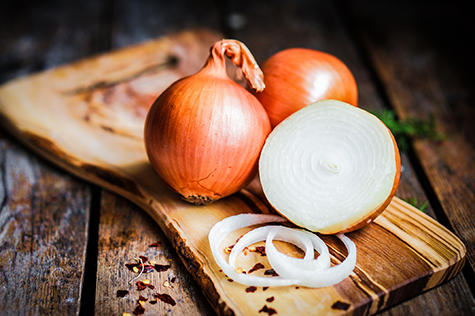 33. Onion
33. Onion
Onions are another allium vegetable, like garlic, packed with the antioxidant quercetin which studies show support detoxification and brain health. The sulfur-containing compounds in these veggies act as antioxidants and offer support to memory in studies. Chop onion in to sauces and stews and put it on sandwiches and salads.
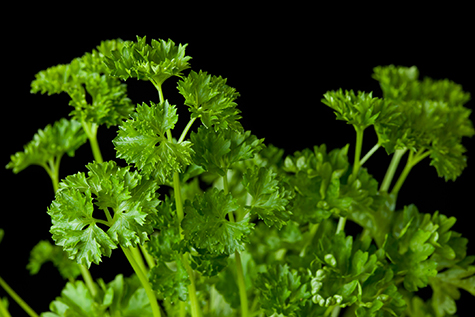 34. Parsley
34. Parsley
This common garnish has more to offer than just beauty on a plate. Other cultures smartly incorporate this herb into dishes for the flavor as well as the health benefits. Packed with the B-vitamin folate, parsley supports clearing homocysteine from the blood, helping to reduce a significant risk factor for cardiovascular disease increased risk for cognitive dysfunction.
35. Pecans
Rich in heart healthy monounsaturated fats and fiber, pecans make a perfect snack to support the brain. Enjoy them when studying or during the work day. Healthy fatty acids protect nerve cells in the brain and help the brain to function at its optimum capacity.
36. Pomegranates
Sweet, tart pomegranate seeds called arils are packed with antioxidants like vitamin C which has been linked to supporting neurological function in some studies. Interestingly, low levels of vitamin C have been observed in patients suffering from Alzheimer’s Disease so make sure and snack on high vitamin C foods regularly.
37. Pumpkin Seeds
Pumpkin seeds are great sources of magnesium, a mineral that has been linked to improved sleep which is an important factor to optimizing memory and learning. Pumpkin seeds are a wonderful snack full of healthy unsaturated fatty acids that work to protect nerve cells in the brain. Enjoy these delicious seeds all year round.
38. Quinoa
A delicious, nutty, gluten-free whole grain, quinoa is rich in vitamins, minerals, and antioxidants including several members of the vitamin E tocopherol family. Some studies have shown that patients with Alzheimer’s Disease suffer from low levels of vitamin E so whole grains like quinoa are important to include in the diet.
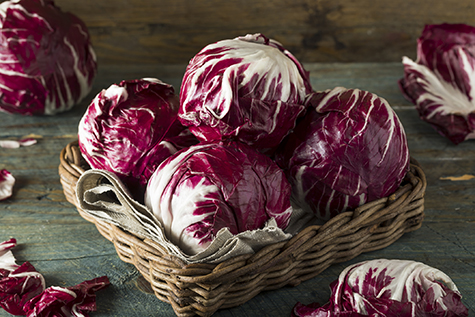 39. Radicchio
39. Radicchio
You can find this bitter green added to salads or in appetizers for its beautiful color and crunch. Like other greens, it is rich in folate, a water-soluble vitamin that helps clear irritating homocysteine from the blood to reduce risk for cognitive dysfunction.
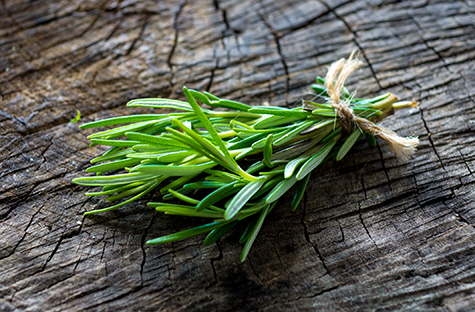 40. Rosemary
40. Rosemary
Fragrant rosemary is an herb to add to your recipes this season for its brain boosting carnosic acid which helps protect the brain from neurodegeneration and free radical damage. Use rosemary to skewer veggies, meat or tofu, in sauces and salad dressings or even in beverages.
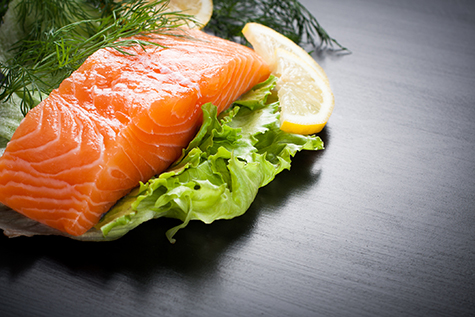 41. Salmon
41. Salmon
Beautiful pink salmon contains high levels of brain supporting omega-3 fats for memory and learning. In studies, stable levels of the essential fatty acid omega-3’s helped study participants improves reference memory-related learning.
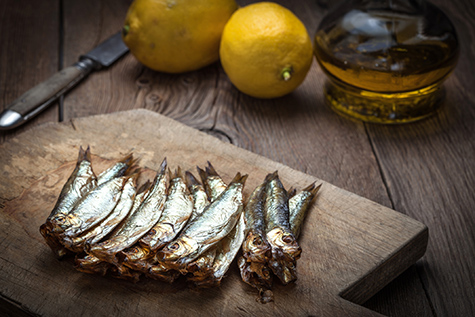 42. Sardines
42. Sardines
Another fish that contains omega 3 fatty acids, sardines are a healthy protein-rich snack or meal with that supports the brain. Better yet, replace red meat or pork with sardines or other cold-water fish because studies have shown a reduction in saturated fat intake is significantly associated with a decreased risk of impaired memory and flexibility. Fatty fish and marine omega-3 intake in the diet is associated with a reduced intake of cholesterol and saturated fat in the diet.
43. Spinach
Spinach is a versatile green leafy veggie packed with brain-boosting nutrients like folic acid and vitamins K and A. Studies show that those who eat leafy green veggies 1-2 times a day experience slower mental deterioration than those who eat no vegetables. Spinach also contains brain-boosting choline so be sure to include it at any meal in the day that you can – breakfast, lunch and dinner.
44. Strawberries
Everyone’s favorite red berry contains more vitamin C per serving than some citrus. This important antioxidant has been shown in studies to be connected to memory loss including Alzheimer’s Disease so intake throughout one’s life is important. Include fresh or frozen strawberries as a snack, on cereal, or in healthy desserts.
45. Sweet Potato
Sweet potatoes are packed with vitamins and minerals. They contain important brain-booting nutrients like vitamins C and E, both of which low levels are observed in patients with Alzheimer’s disease. Sweet potatoes are also an excellent source of vitamin A and B-vitamins and minerals like manganese, copper, and phosphorus.
46. Tofu and Tempeh
Soybeans are rich in riboflavin, also known as B2 which has been shown in studies to support the brain by reducing anxiety and depression. One large 2010 study found that a traditional dietary pattern characterized by vegetables, fruit, meat, fish, tofu/tempeh and whole grains was associated with lower odds for major depression or anxiety disorders. Tofu is also a natural source of phosphatidylserine which may enhance neuronal membrane function and hence cognitive function.
47. Tomatoes
Tomatoes are packed with antioxidants vitamin C and lycopene to help quench free radicals in the brain. It is also rich in potassium for blood pressure control. Importantly, tomatoes are a good source of folate which reduces cardiovascular risk that could ultimately lead to cognitive dysfunction. Just a six-ounce serving tomato juice offers 9% of your daily needs.
48. Trout
Many people don’t realize that trout is also considered a cold-water fish rich in essential omega-3 fatty acids. It is important to get healthy fatty acids for brain health and memory. Consuming fatty fish and omega-3 fats is associated with a reduced intake of cholesterol and saturated fat along with a reduced risk of impaired cognitive function. Include trout in your diet especially if it is local to where you live.
49. Turmeric
Turmeric root contains the anti-inflammatory and brain supporting compound curcumin. This spice plays a potential role in the prevention and treatment of Alzheimer’s Disease and has been shown to improve the cognitive functions in these patients. Scientific evidence indicates that it works for many reasons including reducing oxidative stress, free radicals, beta amyloids, and cerebral deregulation. Be sure to include turmeric in your diet as a delicious spice.
50. Walnuts
Walnuts are packed with omega-3 fatty acids in the form of alpha-linolenic acid (ALA) in addition to minerals manganese and copper. Since not everyone wants to get their omega-3 fatty acids from salmon or anchovies, walnuts can be a great plant-based alternative. While lack of omega-3s have been linked to decreased learning ability but intake of omega-3’s improves reference memory-related learning.
What are your favorite foods for boosting your memory and mental acuity? Let us know in the comments!
Resources:
· Costa MS, Botton PH, Mioranzza S, Souza DO, Porciuncula LO. Caffeine prevents age-associated recognition memory decline and changes brain-derived neurotrophic factor and tirosine kinase receptor (TrkB) content in mice. Neuroscience. 2008 Jun 2;153(4):1071-8.
· Farr SA, Price TO, Dominguez LJ, Motisi A, Saiano F, Niehoff ML, Morley JE, Banks WA, Ercal N, Barbagallo M. Extra virgin olive oil improves learning and memory in SAMP8 mice. Journal of Alzheimer’s Disease. 2012 Jan 1;28(1):81-92.
· Jorissen BL, Brouns FJ, Van Boxtel MP, Ponds RW, Verhey FR, Jolles J, Riedel WJ. The influence of soy-derived phosphatidylserine on cognition in age-associated memory impairment. Nutritional neuroscience. 2001 Jan 1;4(2):121-34.
· Kalmijn SV, Van Boxtel MP, Ocke M, Verschuren WM, Kromhout D, Launer LJ. Dietary intake of fatty acids and fish in relation to cognitive performance at middle age. Neurology. 2004 Jan 27;62(2):275-80.
· Kang JH, Ascherio A, Grodstein F. Fruit and vegetable consumption and cognitive decline in aging women. Annals of neurology. 2005 May 1;57(5):713-20.
· Krikorian R, Shidler MD, Nash TA, Kalt W, Vinqvist-Tymchuk MR, Shukitt-Hale B, Joseph JA. Blueberry supplementation improves memory in older adults. Journal of agricultural and food chemistry. 2010 Jan 4;58(7):3996-4000.
· Mishra S, Palanivelu K. The effect of curcumin (turmeric) on Alzheimer’s disease: An overview. Annals of Indian Academy of Neurology. 2008 Jan;11(1):13.
· Modi KK, Roy A, Brahmachari S, Rangasamy SB, Pahan K. Cinnamon and its metabolite sodium benzoate attenuate the activation of p21rac and protect memory and learning in an animal model of Alzheimer’s disease. PloS one. 2015 Jun 23;10(6):e0130398.
· Nishimura H, Higuchi O, Tateshita K, Tomobe K, Okuma Y, Nomura Y. Antioxidative activity and ameliorative effects of memory impairment of sulfur‐containing compounds in Allium species. Biofactors. 2006 Jan 1;26(2):135-46.
· Parle M, Dhingra D. Ascorbic acid: a promising memory-enhancer in mice. Journal of pharmacological sciences. 2003;93(2):129-35.
· Perkins AJ, Hendrie HC, Callahan CM, Gao S, Unverzagt FW, Xu Y, Hall KS, Hui SL. Association of antioxidants with memory in a multiethnic elderly sample using the Third National Health and Nutrition Examination Survey. American Journal of Epidemiology. 1999 Jul 1;150(1):37-44.
· Peshev D, Peeva LG, Peev G, Baptista II, Boam AT. Application of organic solvent nanofiltration for concentration of antioxidant extracts of rosemary (Rosmarinus officiallis L.). Chemical Engineering Research and Design. 2011 Mar 31;89(3):318-27.
· Petrie M, Rejeski WJ, Basu S, Laurienti PJ, Marsh AP, Norris JL, Kim-Shapiro DB, Burdette JH. Beet Root Juice: An Ergogenic Aid for Exercise and the Aging Brain. Journals of Gerontology Series A: Biomedical Sciences and Medical Sciences. 2016 Nov 9:glw219.
· Phan CW, David P, Naidu M, Wong KH, Sabaratnam V. Therapeutic potential of culinary-medicinal mushrooms for the management of neurodegenerative diseases: diversity, metabolite, and mechanism. Critical reviews in biotechnology. 2015 Jul 3;35(3):355-68.
· Rampersaud GC, Kauwell GP, Bailey LB. Folate: a key to optimizing health and reducing disease risk in the elderly. Journal of the American College of Nutrition. 2003 Feb 1;22(1):1-8.
· Simopoulos AP. Evolutionary Aspects of Diet: The Omega-6/Omega-3 Ratio and the Brain. Molecular Neurobiology. 2011 Jan 29.
· The Telegraph. Brain food: 6 snacks that are good for the mind. http://www.telegraph.co.uk/news/science/science-news/11364896/Brain-food-6-snacks-that-are-good-for-the-mind.html. Published 1/23/2015. Accessed 9/22/17.
· Worlds Healthiest Foods Sweet Potato. http://www.whfoods.com/genpage.php?tname=foodspice&dbid=64. Accessed 9/23/17.
· Zeisel SH. Choline: needed for normal development of memory. Journal of the American College of Nutrition. 2000 Oct 1;19(sup5):528S-31S.

